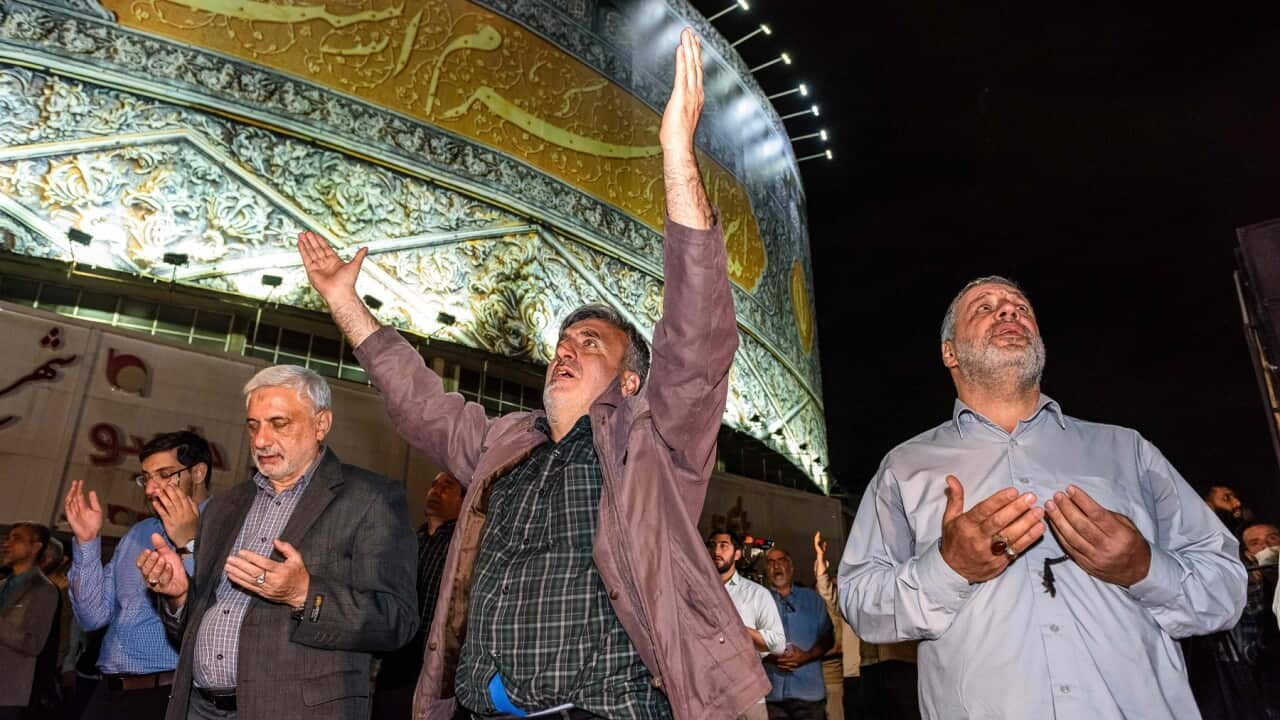TRANSCRIPT
Varying reactions are pouring in following the death of Iranian President Ebrahim Raisi.
The 63 year-old leader died in a helicopter crash apparently caused by poor weather conditions in mountains near the Azerbaijan border on Sunday 19 May.
The wreckage of the helicopter was found early on Monday after an overnight search.
Six other passengers, including the country’s foreign minister Hossein Amir-Abdollahian, were aboard with the crew.
Vice President Mohammad Mokhber has been named acting president and five days of mourning have been declared following an overnight cabinet meeting.
“This is a serious incident for all of us, it is sad and upsetting, but in the interests of country and our people, we won't have any disruption. The country will continue moving forward under this leadership. Everyone should continue on with their roles despite this incident. In no way will this tragic incident interfere with the government and running of our country.”
Mr Mokhber is to serve as president and Ali Bagheri Kani as foreign minister until the country holds an election on 28 June.
President Raisi's death comes during heightened regional tensions and leaves a potential power vacuum in Iran, not just for the presidency but for the successor to Supreme Leader Ayatollah Khamenei.
Residents of Iran's capital, Tehran, are reacting to the news.
Some worry that the death of the hardline leader will open doors to the enemy.
"Well we are all sad about this news, he was a president of the people and we lost a president who worked tireless (for our nation). I am sure that the enemies will abuse this situation. In news reports, Israel, America and UK showed their true selves, as they have done so on many other occasions towards our country in the past. I am sure that the Iranian nation will become stronger."
And some others are optimistic about the future.
"I don't think we are faced with any special problems. Although the pressure is high by adversaries, but we hope that there will be no problems. And certainly, there won't be any, considering our great leader's wisdom and leadership. We have had a lot of such incidents in the past and this one, I think, won't cause any special problems."
The crash comes at a time of growing dissent within Iran over an array of political, social, and economic crises.
The clerical leaders of Iran are under pressure from around the world because of their disputed nuclear project and their growing military links with Russia during the war in Ukraine.
Since October 7, when Iran's ally Hamas attacked Israel provoking Israel’s attack on Gaza, fights between groups allied with Iran have broken out all over the Middle East.
Iran and Israel have also been in a "shadow war" which led to a firing exchange of drones and missiles last month.
Israel and the United States have since denied having any part in the crash.
US defence secretary Lloyd Austin says the country has no insight into the cause of the accident.
"The United States' had no part to play in that crash. And that's a fact plain and simple. Again, they have to conduct an investigation to see what the cause of the crash was. It could be a number of things: mechanical failure, pilot error, you name it."
Iran has now announced it will begin an investigation into the cause of president's helicopter crash.
The US has also confirmed that Iran asked for assistance after the helicopter crash that killed President Ebrahim Raisi and Foreign Affairs Minister Hossein Amirabdollahian.
But US State Department spokesman Matthew Miller says it could not offer help, and the incident will not change their stance towards Iran, including sanctions.
National Security Council John Kirby offered official condolences, but said it is not an endorsement of the President, who he said "has a lot of blood on his hands".
"We're going to continue to stand with the Iranian people as they fight for their own civil rights and, as they should. And we're going to continue to hold Iran accountable for all their destabilising behaviour in the region, which continues to this day."
Other leaders around the world have offered their condolences following the news.
United Nations Spokesman Stephane Dujarric had this to say on behalf of the international organisation.
"The Secretary-General is saddened by the death of Sayyid Ebrahim Raisi, the president of the Islamic Republic of Iran, and Hossein Amirabdollahian, the Minister of Foreign Affairs of the Islamic Republic of Iran, as well as their colleagues in the helicopter accident that took place yesterday on May 19th. The Secretary General expresses his sincere condolences to the families of the deceased, as well as to the government and people of the Islamic Republic of Iran."
Pope Francis has also extended his condolences.
In a written statement the head of the Catholic Church says he sends "the assurance of spiritual closeness" to the Iranian nation during this difficult time.
In commiseration, Pakistan is to observe a day of mourning and Lebanon observes three days.













